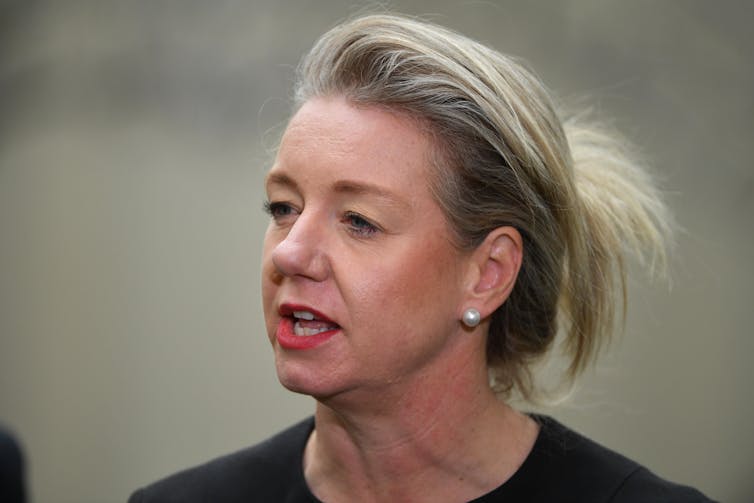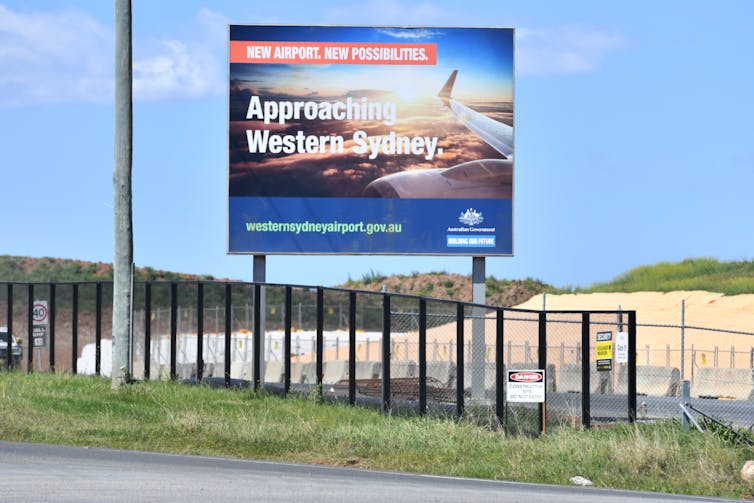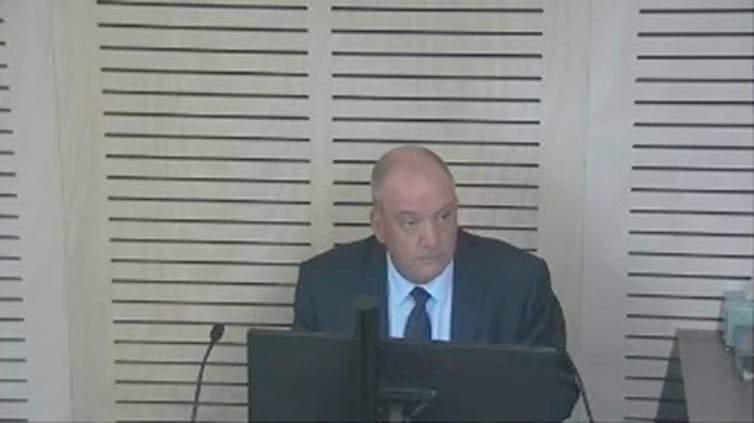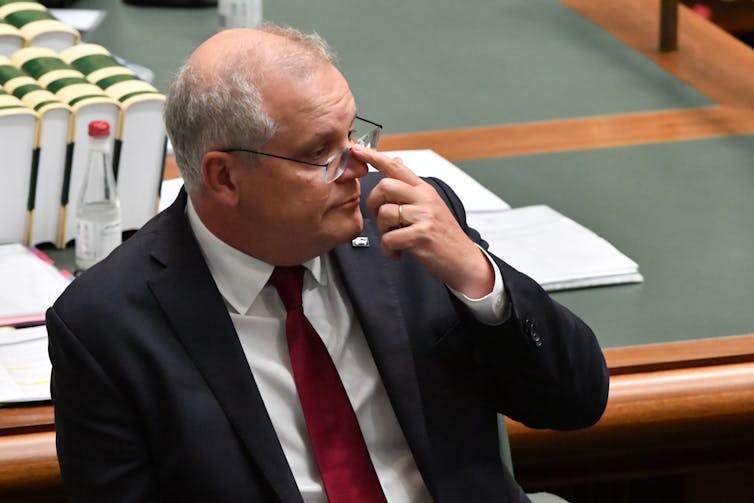As the government drags its heels, a better model for a federal integrity commission has emerged
- Written by Yee-Fui Ng, Senior Lecturer, Faculty of Law, Monash University
Independent MP Helen Haines has just introduced a bill[1] into parliament that seeks to establish a robust new federal integrity commission.
This is a consensus bill that involved consultation with legal academics, panels of retired judges, civil society stakeholders, ethicists and MPs.
Without the government’s support, it is unlikely to pass. But it is a move designed to force the government’s hand.
Although the government has agreed to establish a Commonwealth Integrity Commission[2], it has been dragging its heels on the issue. An exposure draft of the government’s CIC bill was sent to the attorney-general in December, but it has yet to be publicly released[3].
The government has said the bill’s release was delayed[4] due to the immediate priority of responding to the pandemic.
However, the need for a federal integrity commission is just as important as ever, with the government now plagued by multiple scandals involving the misuse of federal funds, such as the Western Sydney airport deal[5], the ASIC chair’s tax advice bill[6], the Angus Taylor water buyback scheme[7] and the “sports rorts” affair[8].
 Bridget McKenzie was forced to resign after the sports rorts affair.
Mick Tsikas/AAP
Bridget McKenzie was forced to resign after the sports rorts affair.
Mick Tsikas/AAP
A strong — and independent — integrity commission would be able to investigate such issues thoroughly. It shouldn’t be left to the government to monitor itself any longer.
Read more: Government's Commonwealth Integrity Commission will not stamp out public sector corruption — here’s why[9]
What makes this proposal worth considering
Overall, the bill proposes a robust commission with strong powers, coupled with checks and balances to ensure it does not abuse its powers.
Perhaps most significantly, the proposed integrity commission would have the power to conduct public hearings if it believes it’s in the public interest, balancing the seriousness of allegations with any unfair prejudice to a person’s reputation or unfair exposure of a person’s private life.
This is a proportionate model that enhances public trust through public hearings, but also takes into account legitimate concerns about damage to an individual’s reputation.
By contrast, the government’s proposed CIC would not have the power to conduct public hearings.
 The AFP is investigating possible criminal offences linked to the $30 million land deal for the new Sydney airport.
Mick Tsikas/AAP
The AFP is investigating possible criminal offences linked to the $30 million land deal for the new Sydney airport.
Mick Tsikas/AAP
Haines’s proposed commission would also have the power to make findings of fact and recommendations in a public report. It could refer matters involving criminality to law enforcement authorities.
The commissioner would be a statutory office holder who is independent of government. He or she would be supported by several assistant commissioners to allow for internal checks and balances.
And the body would include a whistleblower protection commissioner, which is particularly necessary given how weak[10] Australia’s whistleblower laws are considered to be.
Read more: From Richard Boyle and Witness K to media raids: it’s time whistleblowers had better protection[11]
Importantly, the bill would provide for external accountability mechanisms to “watch the watchdog” via parliament and the courts.
Specifically, there would be oversight by a parliamentary joint committee to ensure the body’s compliance with the law, due process and other standards. Its decisions would also be subject to judicial review.
The commission’s funding would need approval by the joint parliamentary committee, as well, which provides some financial protection. This is important as the NSW Independent Commission Against Corruption (ICAC) has had its budget severely cut[12] following its explosive revelations of corruption in government.
Haines’ bill also proposes a corruption prevention program for the Commonwealth public sector. This is a positive, pro-integrity function that monitors major corruption risks across all sectors.
 The NSW ICAC is currently investigating former MP Daryl Maguire’s alleged misuse of public office for personal gain.
ICAC handout
The NSW ICAC is currently investigating former MP Daryl Maguire’s alleged misuse of public office for personal gain.
ICAC handout
Why the government’s model has been criticised
The government’s CIC model is a watered-down version[13] of Haines’s proposed body. It has been criticised for a few reasons.
The first is that it would fail to achieve its main aim of exposing corruption in the public sector.
The bar for investigation is too high, requiring a reasonable suspicion of corruption amounting to a criminal offence before an inquiry can even begin. This is a difficult hurdle to clear.
 The Morrison government has been criticised for postponing its proposed integrity commission.
Mick Tsikas/AAP
The Morrison government has been criticised for postponing its proposed integrity commission.
Mick Tsikas/AAP
Lessons from the state anti-corruption commissions show evidence of corruption is typically unveiled through investigations themselves (based on credible allegations), rather than before an investigation begins.
Another major criticism is the proposed CIC will not have the power to hold public hearings.
Public hearings ensure proceedings are not cloaked in secrecy. They also increase public trust. Widespread corruption has been uncovered through such hearings in the past, such as the Fitzgerald inquiry[14] in the 1980s into corruption in the Queensland police force. This led to the resignations and imprisonments of various former ministers and officials.
Read more: Grattan on Friday: Morrison's promised integrity commission can't hide behind COVID much longer – can it?[15]
The time to act is now
All states now have an anti-corruption commission and the federal government is lagging behind.
A bill is now before parliament that puts forward a strong, yet proportionate, vision for an integrity commission with robust powers and both internal and external accountability mechanisms.
It has been developed through a strong consultative process with legal experts, academics and civil society.
In short, it is a better model than what the government has proposed. It is now time for the government to move forward to promote political integrity — without any further delay.
References
- ^ bill (www.aph.gov.au)
- ^ Commonwealth Integrity Commission (theconversation.com)
- ^ yet to be publicly released (www.tai.org.au)
- ^ delayed (www.theguardian.com)
- ^ Western Sydney airport deal (www.theguardian.com)
- ^ ASIC chair’s tax advice bill (www.abc.net.au)
- ^ Angus Taylor water buyback scheme (www.theguardian.com)
- ^ “sports rorts” affair (theconversation.com)
- ^ Government's Commonwealth Integrity Commission will not stamp out public sector corruption — here’s why (theconversation.com)
- ^ weak (theconversation.com)
- ^ From Richard Boyle and Witness K to media raids: it’s time whistleblowers had better protection (theconversation.com)
- ^ budget severely cut (www.theguardian.com)
- ^ watered-down version (theconversation.com)
- ^ Fitzgerald inquiry (www.ccc.qld.gov.au)
- ^ Grattan on Friday: Morrison's promised integrity commission can't hide behind COVID much longer – can it? (theconversation.com)













